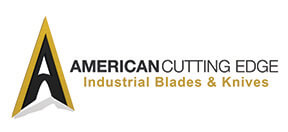Gregory Billhardt
-
When performing routine maintenance on your machinery, evaluating the condition of your industrial knives is a crucial step. Unfortunately, industrial machine knife sharpening often gets pushed aside in favor of other “critical” needs. But neglecting knife maintenance can be a costly—and dangerous—mistake.
It might seem convenient to drop your knives off at a nearby machine shop. After all, they have a grinder, and it’s quick and easy. But here’s the problem: general machine shops typically lack the expertise required to properly sharpen industrial knives. And that lack of specialization can hurt your productivity, safety, and bottom line.
Here are three key reasons why working with a professional knife sharpening service for industrial machines is essential for your operation:
1. Specialized Knowledge Produces Superior Results
Industrial knife sharpening isn’t just about grinding metal. It requires in-depth understanding of
-
Knife Material and Hardness The Steel Tariffs imposed by the Trump administration have garnered significant interest; especially in our industry, where both steel and aluminum play a primary role.
This is hardly the first time a sitting President has imposed a tariff on steel. As early as 1979, then Treasury Secretary Alexander Hamilton proposed a series of tariffs, including one on steel, each of the new tariffs was accepted.
More recently, George W. Bush, George H.W. Bush, Ronald Reagan, Jimmy Carter, Richard Nixon, and Lyndon B. Johnson all attempted to protect American steel producers by imposing tariffs on steel imports.
Often, it is tough to distinguish fact from fiction as we wade through the political commentary to understand how legislative decisions, such as this one, influence our industry.
Let's start with a few basic facts:
- Although dubbed the Steel Tariffs, the trade sanctions signed into law on

